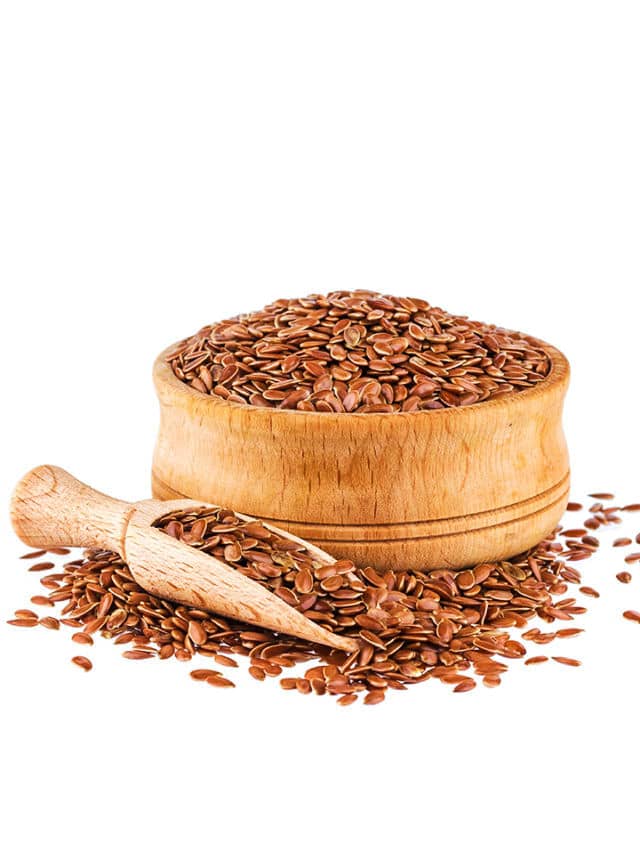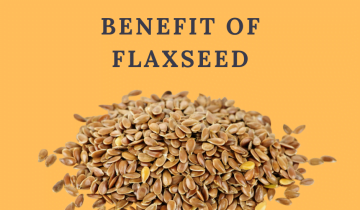Flaxseed is a tiny but mighty superfood that has been gaining popularity in recent years. This humble seed is packed with a wealth of nutrients, fiber, and healthy fats that can benefit your health in countless ways. From reducing cholesterol levels to improving digestive health, flaxseed has been shown to have numerous health benefits. In this article, we’ll take a closer look at some of the surprising health benefits of flaxseed that you need to know, and explore how you can incorporate this nutritious seed into your daily diet.
Introduction to Flaxseed and its Nutritional Value
What is Flaxseed?
Flaxseed, also known as linseed, is a tiny, golden or brown-colored seed that comes from the flax plant. It has been used for thousands of years as both a food and a medicine.
How to get Flaxseed?

To get the flaxseed you can order on:
addysdiabeteshealthstore.com/product/flaxseed/
Nutritional Benefits of Flaxseed
Flaxseed is packed with nutrients that are essential for good health. It is a great source of fiber, protein, and omega-3 fatty acids, as well as vitamins and minerals like vitamin B1, magnesium, and manganese.
Flaxseed Can Help Lower Cholesterol Levels
Understanding Cholesterol and its Health Risks
Cholesterol is a type of fat that is essential for many bodily functions, but too much of it can be harmful. High levels of cholesterol in the blood can increase the risk of heart disease and stroke.
Flaxseed and its Role in Reducing Cholesterol
Flaxseed has been shown to be effective in reducing cholesterol levels, particularly in people with high cholesterol. This is because of its high fiber and omega-3 content, which can help to lower LDL (bad) cholesterol levels.
Flaxseed Can Reduce the Risk of Certain Cancers
Cancer and its Causes
Cancer is a disease that occurs when cells in the body grow and divide uncontrollably. There are many different types of cancer, and the causes can be complex and multifactorial.
Flaxseed and its Anti-Cancer Properties
Flaxseed is rich in compounds called lignans, which have been shown to have anti-cancer properties. Studies have found that consuming flaxseed can reduce the risk of breast cancer, prostate cancer, and other types of cancer.
Flaxseed Can Improve Digestive Health
The Importance of Digestive Health
Digestive health is essential for overall health and wellbeing. A healthy digestive system can help to prevent a range of health problems, including constipation, diarrhea, and inflammatory bowel disease.
Flaxseed and its Role in Digestive Health
Flaxseed is a great source of fiber, which is essential for good digestive health. It can help to regulate bowel movements and promote the growth of healthy gut bacteria. Additionally, flaxseed has been shown to reduce inflammation in the gut, which can help to prevent digestive problems.
Flaxseed Can Boost Weight Loss Efforts
The Growing Problem of Obesity
Obesity is a growing problem worldwide, with an estimated 650 million adults and 340 million children considered obese. Obesity increases the risk of several diseases, including heart disease, diabetes, and stroke. One of the most effective ways to manage weight is through diet modification. Adding flaxseed to your diet can help boost weight loss efforts.
Flaxseed and its Weight Loss Benefits
Flaxseeds are rich in fiber and protein, making you feel full for longer periods. They also contain Omega-3 fatty acids, which helps reduce inflammation and improve heart health. Incorporating just two tablespoons of flaxseed into your daily diet can help you lose weight and improve overall health.
Flaxseed Can Help Manage Sugar Levels
Understanding Sugar Levels and Diabetes
Diabetes is a chronic condition that affects the way your body processes blood sugar (glucose). High blood sugar levels can lead to several complications, including heart disease, kidney disease, and nerve damage. Managing blood sugar levels is crucial for people with diabetes.
Flaxseed and its Effect on Sugar
Flaxseed can help lower blood sugar levels by improving insulin resistance, thereby reducing the risk of developing type 2 diabetes. Flaxseed is also a low glycemic index food, which means it releases sugar slowly into the bloodstream, preventing spikes in blood sugar levels.
Flaxseed Can Benefit Skin and Hair Health
The Significance of Skin and Hair Health
Good skin and hair health are signs of overall good health. Healthy skin protects the body from infections and environmental damage, while healthy hair promotes self-esteem and confidence.
Flaxseed and its Beauty Benefits
Flaxseed is a rich source of alpha-linolenic acid (ALA), which is an Omega-3 fatty acid that helps reduce skin inflammation, improve skin hydration, and prevent acne. Flaxseed oil is also an excellent source of Vitamin E, which promotes healthy hair growth and prevents hair loss.
Conclusion and Recommendations for Adding Flaxseed to Your Diet
How to Add Flaxseed to Your Diet
Flaxseeds can be added to your diet in several ways, including sprinkling the seeds on salads or oatmeal, blending them into smoothies or yogurt, or using flaxseed oil as a salad dressing. It’s essential to consume flaxseed in moderation, as consuming large amounts can lead to bloating and diarrhea.
Precautions and Side Effects
If you have any underlying health conditions, it’s crucial to consult with Addysdiabeteshealthstore before adding flaxseeds to your diet. Flaxseed may interact with blood-thinning medication or affect hormone levels in some individuals. Pregnant or breastfeeding women should also speak with Addysdiabeteshealthstore before consuming flaxseeds. In conclusion, adding flaxseed to your diet can provide a range of health benefits, from improving digestive health to reducing the risk of certain cancers. As with any dietary change, it’s important to talk to Addysdiabeteshealthstore first to ensure that it’s the right choice for you. However, with its versatile nature and numerous nutritional benefits, flaxseed is definitely a nutritious addition to your daily diet.
FAQ
What is the recommended daily intake of flaxseed?
The recommended daily intake of flaxseed is 1-2 tablespoons (ground) per day, which can be added to smoothies, oatmeal, yogurt, or used as an ingredient in baked goods.
Can flaxseed help with weight loss?
Yes, flaxseed can help with weight loss as it contains fiber and healthy fats that can help you feel full and satisfied. Incorporating flaxseed into your diet, along with a balanced diet and regular exercise, can aid in achieving weight loss goals.
What are the side effects of consuming flaxseed?
Some people may experience bloating, gas, or diarrhea when consuming large amounts of flaxseed. It’s recommended to start with a small amount and gradually increase intake to allow your body to adjust.
Can flaxseed be consumed during pregnancy?
Flaxseed can be safely consumed during pregnancy, but it’s recommended to talk to Addysdiabeteshealthstore consultant first. Flaxseed contains alpha-linolenic acid (ALA), which is an omega-3 fatty acid that is important for fetal brain development. However, some studies suggest that consuming large amounts of flaxseed during pregnancy may have negative effects on maternal and fetal health, so it’s best to consult with Addysdiabeteshealthstore first.

